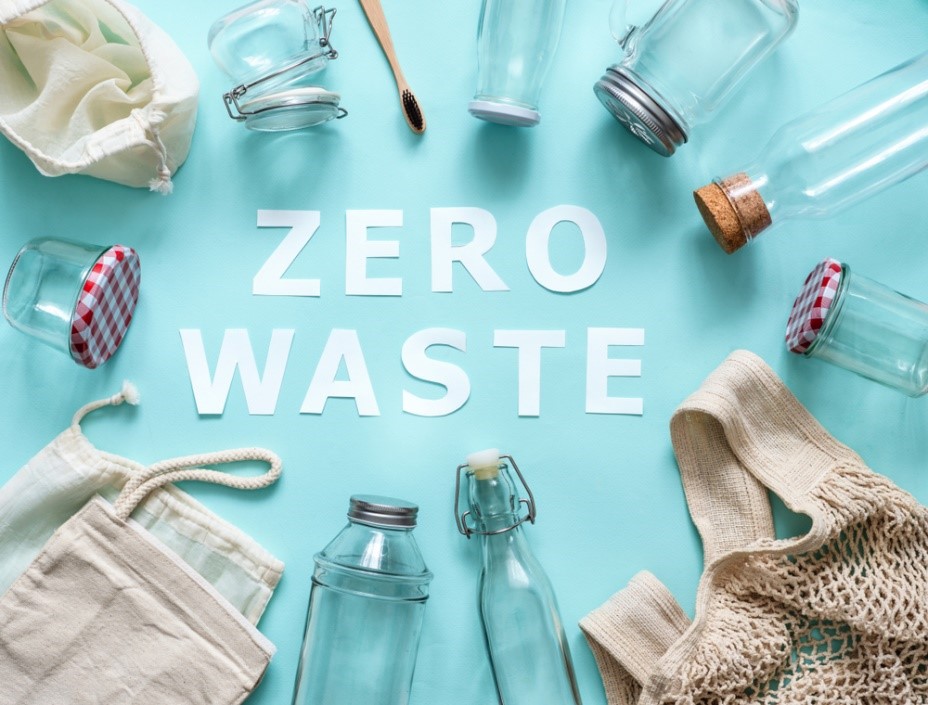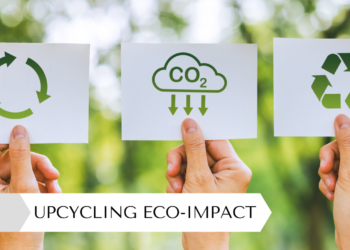In an era defined by consumerism and disposable culture, a powerful counter-movement is gaining global momentum: zero-waste living. More than just a trend, zero-waste is a philosophy and a practical lifestyle that seeks to minimize or eliminate the production of trash. It’s a journey that challenges the “take-make-dispose” model, encouraging a shift towards a circular economy where resources are valued and waste is seen as a design flaw, not an inevitable byproduct. While the idea of generating no trash might seem impossible, the movement is about progress, not perfection. It’s a conscious decision to reduce your environmental footprint, save money, and live a more intentional, sustainable life. This comprehensive article will explore the core principles of zero-waste, the profound benefits of adopting this lifestyle, and provide actionable steps to help you start your own journey toward a more sustainable future.
The Foundational Principles of Zero-Waste

The zero-waste lifestyle is built upon a simple yet powerful framework known as the 5 Rs, in order of importance. Mastering these principles is the key to minimizing waste and creating a more sustainable routine.
A. Refuse: This is the most crucial R. The goal is to refuse things you don’t need in the first place. This includes plastic straws, disposable coffee cups, single-use plastic bags, junk mail, and free promotional items. By saying no, you stop the problem at its source and prevent waste from ever entering your life. It’s about being a conscious consumer and thinking about the entire lifecycle of a product before you accept it.
B. Reduce: The next step is to reduce your consumption of items you do need. This means buying less and choosing products with minimal or no packaging. It’s about questioning your habits: Do you really need a new piece of clothing or can you make do with what you already own? This principle encourages a minimalist mindset, focusing on quality over quantity and prioritizing long-term value.
C. Reuse: Before you buy something new or throw something away, consider if it can be reused. This could mean using glass jars for food storage, refilling your water bottle instead of buying a new one, or repurposing old clothes as cleaning rags. The reuse principle saves resources and reduces the demand for new products. It’s about creativity and seeing the potential in items that might otherwise be discarded.
D. Recycle: While often seen as the primary solution to the waste problem, recycling is actually the fourth step. It’s important, but it should be a last resort after you have refused, reduced, and reused. The reality is that recycling processes are energy-intensive and not all materials can be recycled indefinitely. The focus should be on creating less waste in the first place, with recycling as a backup plan for unavoidable items.
E. Rot (Compost): This final R focuses on organic waste. Composting food scraps, yard trimmings, and other biodegradable materials turns them into nutrient-rich soil. This not only diverts waste from landfills, where it would produce harmful methane gas, but also enriches the earth for gardening and landscaping. Composting closes the loop, returning organic matter to the earth in a beneficial way.
The Benefits of a Zero-Waste Lifestyle
Adopting a zero-waste lifestyle is a commitment that brings a host of benefits, both for the individual and for the planet.
A. Environmental Impact: The most obvious benefit is the reduction of your environmental footprint. By producing less trash, you help divert waste from overflowing landfills and reduce the demand for new resources, which in turn saves energy and minimizes pollution from manufacturing and transportation. The zero-waste movement directly addresses critical issues like plastic pollution, deforestation, and climate change.
B. Financial Savings: Zero-waste living is inherently frugal. By refusing and reducing, you spend less money on disposable products and unnecessary items. Buying in bulk, making your own products, and repairing instead of replacing all contribute to significant long-term savings. The initial investment in reusable items like a water bottle, coffee cup, or bulk shopping bags quickly pays for itself.
C. Improved Health: Many zero-waste practices lead to a healthier lifestyle. By avoiding heavily packaged, processed foods, you are more likely to cook fresh, whole foods. Making your own cleaning products from simple, natural ingredients reduces your exposure to harsh chemicals found in many commercial products. This can lead to a cleaner home environment and better overall health.
D. Mental Clarity and Simplicity: The zero-waste lifestyle is closely tied to minimalism. By consuming less, you have less to store, organize, and clean. This creates a less cluttered home and a less cluttered mind. It’s about valuing experiences over possessions and finding contentment in simplicity. The act of living more intentionally can reduce stress and increase a sense of purpose.
E. Enhanced Community Connection: Engaging in zero-waste practices often leads to a greater sense of community. This could be through supporting local bulk stores, sharing tips with friends and family, or participating in community composting programs. The movement fosters connection and a shared commitment to a better future.
A Practical Guide to Going Zero-Waste

Starting a zero-waste journey can feel overwhelming, but it doesn’t have to be. The best approach is to start small, be patient with yourself, and make changes at your own pace.
A. Start with the Essentials: The easiest way to begin is by tackling the most common sources of waste in your life. Focus on the “Big Four” offenders: disposable coffee cups, plastic water bottles, plastic bags, and plastic straws. Invest in a reusable coffee cup, a high-quality water bottle, and a set of reusable shopping bags. Keep these items in your car or bag so you’re always prepared.
B. Audit Your Trash: For one week, pay close attention to what you’re throwing away. This simple exercise will help you identify your biggest sources of waste. Is it food packaging? Paper towels? Single-use toiletries? Once you know where your waste is coming from, you can focus your efforts on those specific areas.
C. Tackle the Kitchen: The kitchen is often the source of most household waste.
- Bulk Shopping: Find a local store that offers bulk goods like grains, pasta, nuts, and spices. Bring your own reusable bags and containers to fill up.
- Food Storage: Ditch the plastic wrap and sandwich bags. Use glass jars, reusable silicone bags, and beeswax wraps for food storage.
- Compost: Start a small indoor or outdoor compost bin for food scraps. This can significantly reduce the amount of waste you send to the landfill.
D. Simplify Your Bathroom: The bathroom is another major source of plastic waste.
- Switch to Solid Products: Replace liquid soap, shampoo, and conditioner with solid bars. These products are often sold without packaging and last much longer.
- Reusable Alternatives: Use a reusable razor instead of a disposable one. Switch to a bamboo toothbrush and a dental floss that comes in a glass container.
- DIY Products: Consider making your own toothpaste or deodorant using simple ingredients like baking soda and coconut oil.
E. Mindful Shopping and Consumption: Think before you buy. Ask yourself if you truly need an item. Choose products with minimal packaging or from companies that have a strong commitment to sustainability. Support local farmers’ markets where products are often sold loose and with less packaging.
Conclusion
The zero-waste movement is a powerful reminder that our individual choices have a collective impact. While the goal of generating no waste might seem ambitious, the true essence of this lifestyle is the commitment to constant improvement. It’s a journey of mindfulness and intention, where every small action—from refusing a plastic bag to composting food scraps—contributes to a larger, more sustainable vision.
This lifestyle is not about deprivation; it’s about abundance in a different form. It’s about having a richer life with fewer possessions, a healthier body, and a deeper connection to the environment. The zero-waste philosophy teaches us to value resources, respect the planet, and find joy in simplicity. By embracing the 5 Rs, we are not just changing our habits; we are reshaping our relationship with the world around us. This is the future of living—a future where waste is not an end product, but a valuable resource, and where our homes are a testament to a life lived with purpose, consciousness, and a deep respect for our planet.












